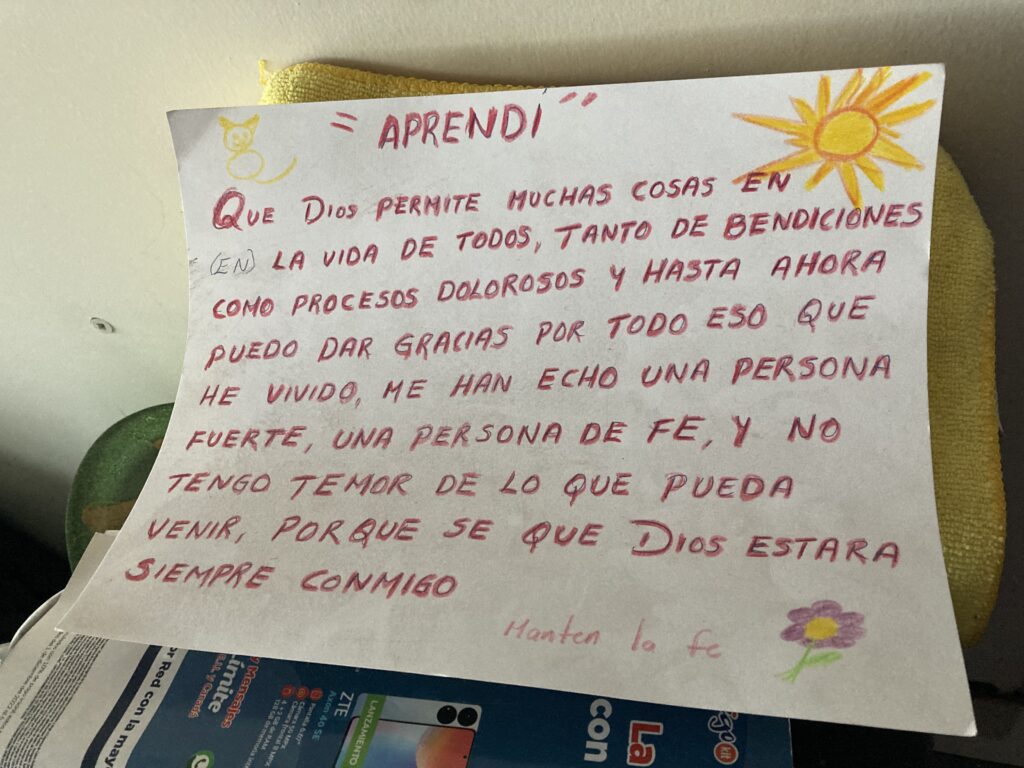March 11, 2023
Hello from two months into my pilgrimage along this most bustling and news-garnering frontier! I am currently sitting at a desk in a room lent to me for the month at the Marist-Maryknoll house in El Paso, Texas. There is a beautiful stained glass lamp to my right that lights up the windowless space, and I am snacking on a coconut candy bar which is dyed the colors of the Mexican flag. This morning I feel light, I feel inspired, I feel hopeful.
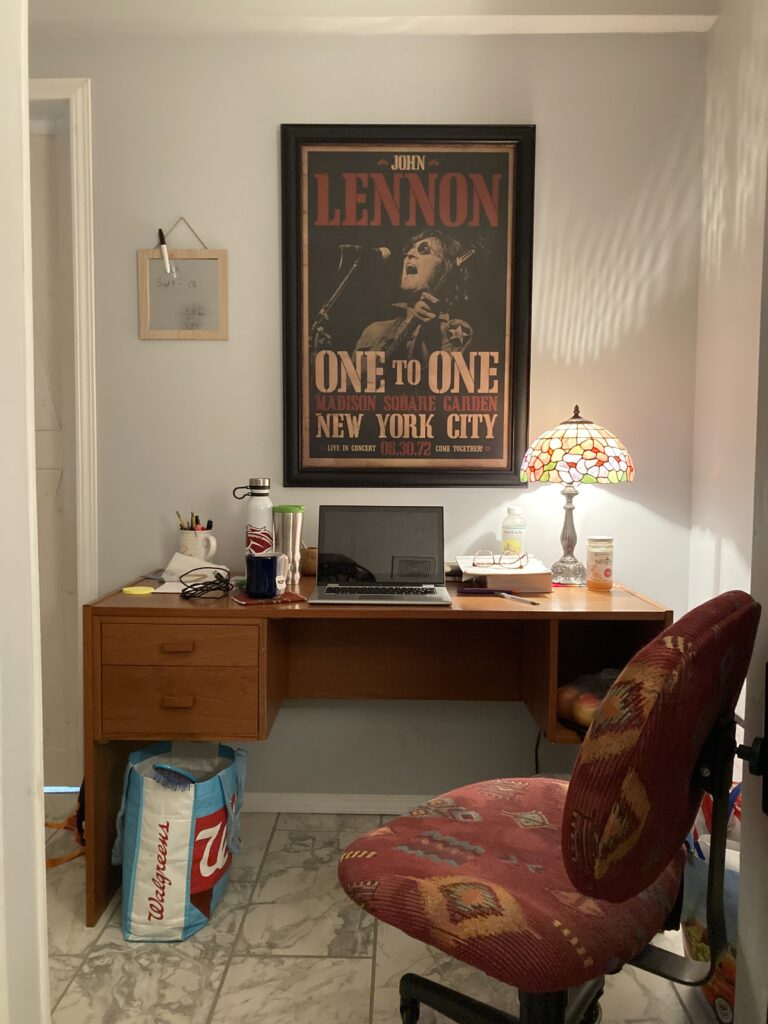
The blessing of this chapter (in El Paso) is the opportunity to take a larger pause and process where I have come from. There are days when I feel disconnected and aimless – surely, more days than I would wish are like this – and I can descend into self-doubt. That experience tends to resonate for me regardless of where I am or what I am doing. Growing up, my mom called it being “in a funk.”
But then there are other days where I listen to scores of movies I have never seen (currently listening to “Half Brothers” by Jordan Seigel) and I smile at the sky and I feel inspired, overwhelmed with conviction and gratitude beyond words. Sometimes it is difficult to transform those moments into the action I seek. I am dedicating this time to cultivating that conviction and inspiration rather than trying to transform it so quickly. The time will come for that, I am sure.
The few days that I spent at Kino Border Initiative were informative and beautiful. Though I had some challenging days, I treasure the small interactions of community that I shared with the staff and volunteers to whom I reported. I listened to NPR news many mornings on the drive down with Sisters Tracey and Marilu. I felt tenderly seen and cared for by Sister Nancy. I shared a meal with a few volunteers and Missionaries of the Eucharist (complete with tequila and homemade habanero salsa, y’all!) with lots of laughter and lament. I shared deep conversations with and read the reflections of the father of my former choir-mate from Seattle U.
I admire the organization’s efforts to uplift and support the volunteer/staff community; even though I only offered 9 days of labor, I was celebrated with a beautiful tres leches cake on my last day and a card signed with sweet messages. So many of the staff repeated that they hoped that I would come back some day (and married! With my spouse!) not too far off in the future.
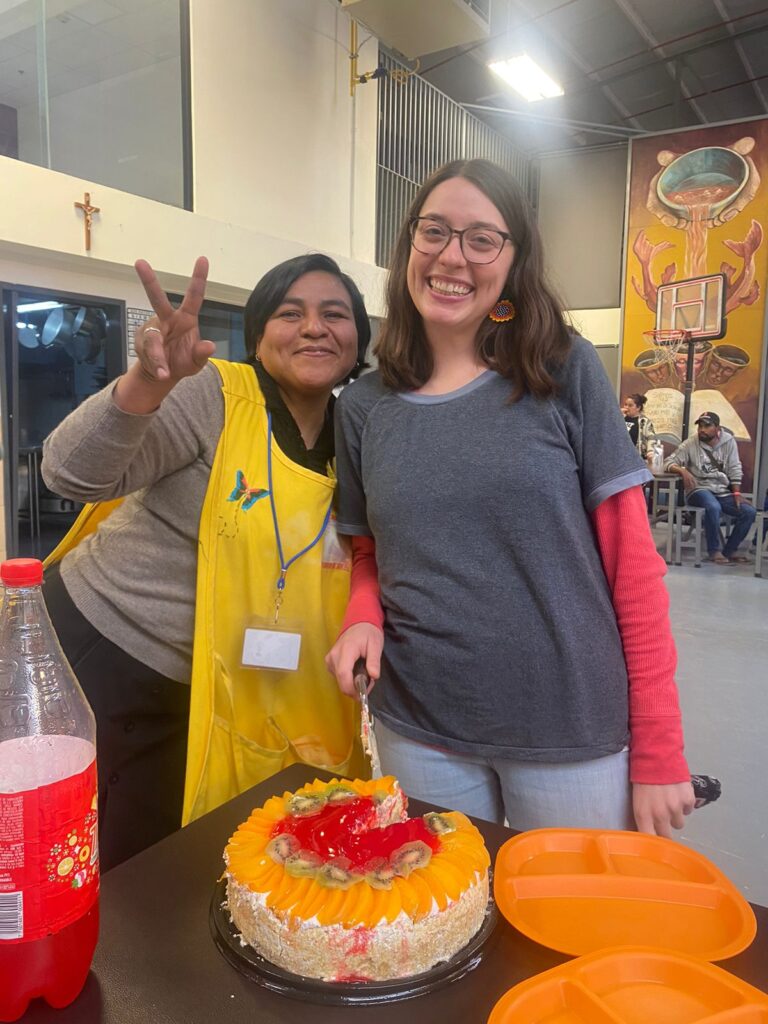
My most favorite part of being at Kino was being able to witness and learn about the heart of their organizational focus. At first I thought that protocol was what I wanted to learn, but I quickly realized that protocols are situational, regional, and shifting. The mission and underlying values is what inspires me more. What I want, more than anything, are responses to the questions “what future do we imagine for all of us? What kind of community – and world – do we want to be a part of building, and how will we do that?”
During my orientation, they shared with me their “strategic priorities” that they are focusing on during these next 3 years as an organization constantly growing and evolving. Holistic accompaniment of the migrants is the first priority – including recreation, spiritual care, empowerment, and access to rights. The next is migrant integration in the United States, sustaining communities of mutual accompaniment and motivating and equipping educational partners to welcome and accompany migrants. The next priority is local hospitality, which includes networking and hospitality, in Sonora, Mexico, followed by policy change: creating political will in the U.S. to advance humane, just, and workable migration policy through changes in public sentiment, transforming indifferent communities towards empathy. Their final explicit priority is equity and wellness – promoting dignity, equity, and wellness among staff and volunteers.
All of the organizations I have visited with so far – Ajo Samaritans, Casa Alitas, Humane Borders, Kino Border Initiative – really are trying to meet darkness with hope, to offer life-sustaining support, to transform values of love, justice, dignity, and community into action. None of these organizations claims to be doing everything, or solving all the problems, or helping everyone. They don’t suggest having all of the answers to mass migration of peoples across the globe. They, like any other social service oriented organization or collective, are able to discern the value of doing something, however small or temporary, despite the many obstacles and challenges. Of planting seeds, of taking up the work which is theirs.
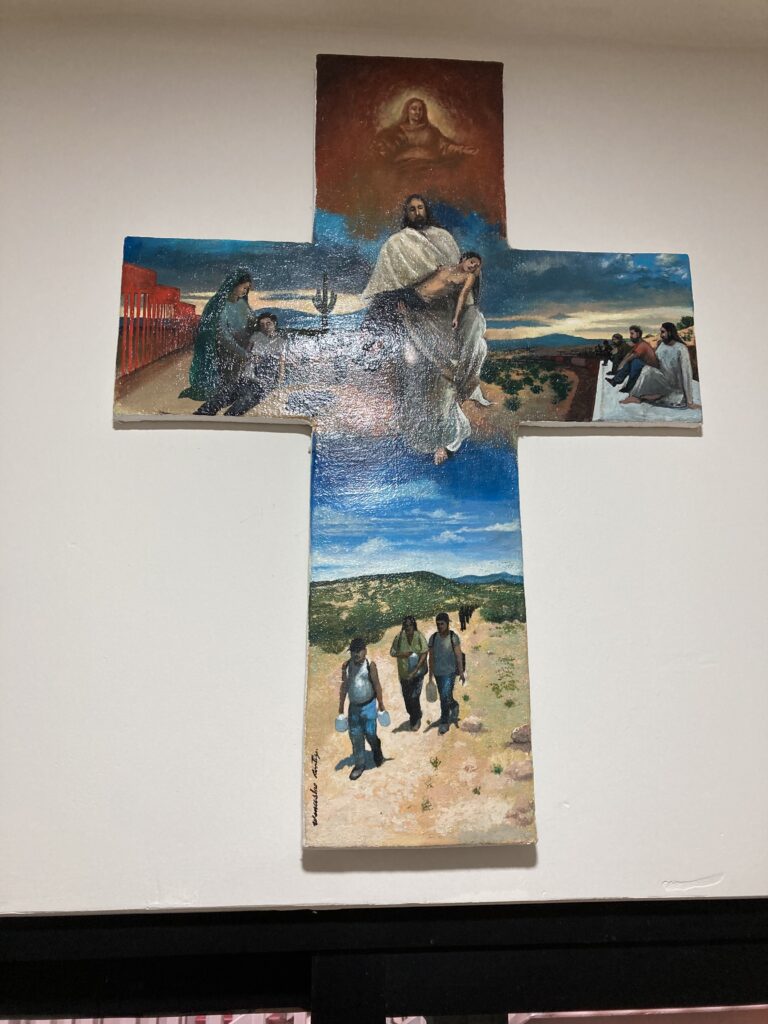
I think sometimes there is a fear of having one’s heart broken that keeps people from engaging with individuals and communities that are experiencing particularly acute suffering (that, mixed with our self-absorption that convinces us that we actually don’t have time or energy or capacity ;; Father Greg Boyle says that people are not selfish, we are just self-absorbed. We are distracted by ourselves, which keeps us from seeing others). When we aren’t raised with the normalization of volunteering, mutual aid, and community-oriented action, those things become choices that only “really good people” make, or “saints,” or people with “big hearts,” or people who are “brave,” but not us. And then, because we are still watching the news and going downtown and avoiding travel to certain areas, we don’t know how to engage with any community problems at all, and so we spend our energy and money and time trying to anesthetize the pain and fear that naturally arises. We try to regain control of all of aspects of our lives – using our security cameras, and financial planning applications, and body-building practices at the gym – to counter the angst of our uncontrollable surroundings. And the more we disengage with the world around us, the more we sink into apathy and indifference. And as Patrick Saint-Jean, S.J., says in The Spiritual Work of Racial Justice,
“…when we let ourselves sink into apathy and indifference, the fire of our imagination flickers out. We can no longer envision the possibility of a better world. Something within us is dead.” (pg. 313)
I suspect that my culture’s obsession with material acquisition and the commercial and political promotion of improving the efficiency, comfort, and pleasure of our lives without regard to our neighbors or environment would explain why so many of us are trying to scale up our protections and engage even less with our communities. Then we also have the continuation of white supremacist paternalism and unbridled exploitative capitalism that elevates individual charity and “doing something nice for others” while annihilating any attempts at structural reform. None of us are immune from what we have inherited from our ancestors, the good and the bad, and the societal contexts within which we are formed as human beings.
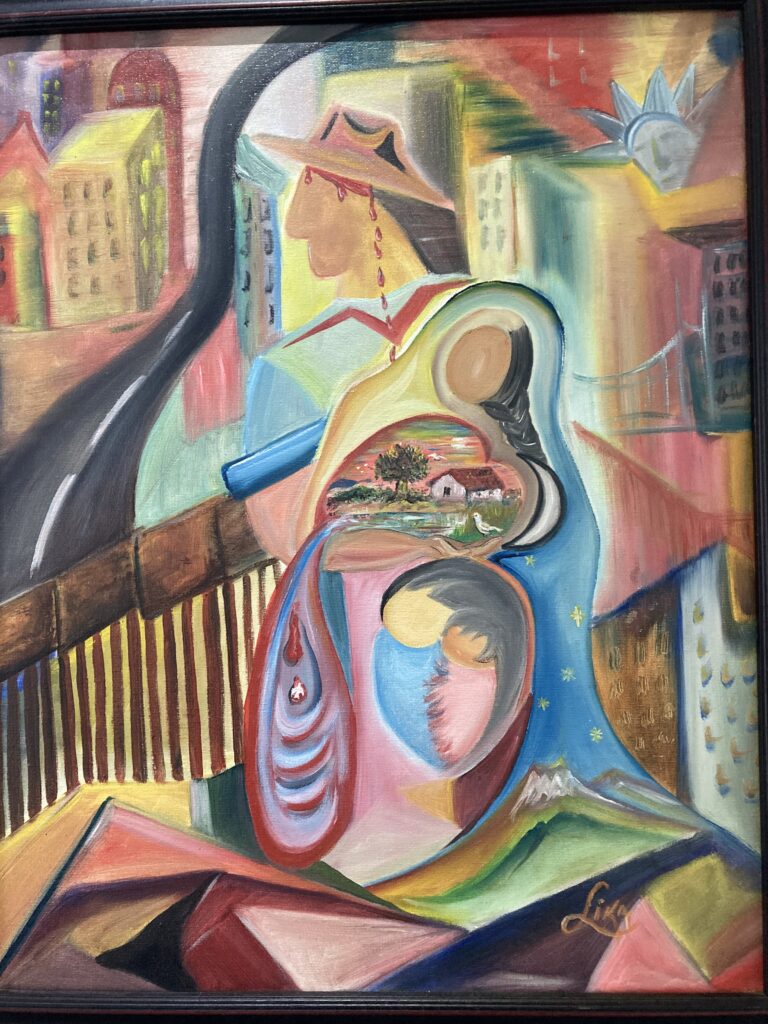
And yet we are all gifted with conscience to discern, outside of a mindset of survival, to throw away (or transform) that which is not serving us and will not serve the seventh generation that comes after us. Those of us who were raised within a Christian context or are practicing know that during this time of Lent, we are not spiritually preparing for the Crucifixion. We are preparing for the Resurrection.
“The Resurrection is a call to imagine. It challenges us to broaden our perspectives and discover the full volume of what God is calling us to be and do. Imagination fuels empathy, allowing us to explore what it means to feel, see, and think as another person.” Patrick Saint-Jean, S.J., “The Spiritual Work of Racial Justice”
And so I pray that we may each discern our own strategic priorities, like Kino, that explicitly call us into deeper relationship with ourselves, our neighbors, and our ecological home, using our imagination to “re-create our world, allowing us to be co-creators with God.” ?
